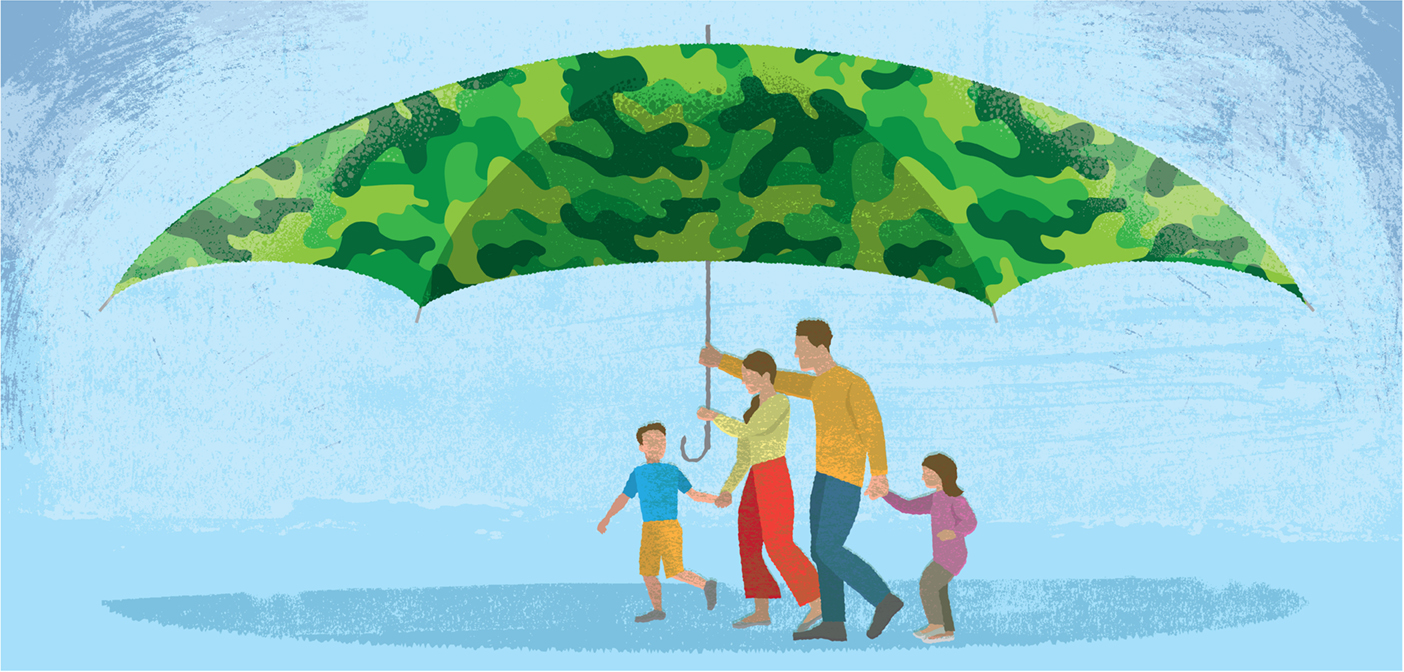WRITTEN BY STEVE ST. ANGELO | ILLUSTRATIONS BY ANDY SNAIR
Military family members bear an often unknowable burden, due to a need for more research as well as “the unique lifestyle and physical and psychological health exposures associated with spousal/parental military service.” As researchers move to fill that data gap, what they are finding is how critical the ability of the health care provider is to ensuring the success of the military spouse and military-connected child, Associate Professor Catherine Ling and a colleague write in “Building Resilience in U.S. Military Families: Why It Matters” (BMJ Military Health).
So, why does it matter? First, military families are too easily overlooked, especially in times of war such as the two decades of conflict in Iraq and Afghanistan that have put significant stressors not only on service members but their families back home. And pragmatically, the nation must show that it will take care of its own to keep men and women signing up to serve its all-volunteer military branches, including those next in line for that “unique lifestyle.”
It starts with health care providers identifying military family members in clinical practice and initiating “culturally competent care” to match their status. “Historically, in the United States, there has been a proud legacy of generational military service in families—upwards of 80% of new recruits have a family member who has served in the military,” the authors report. “The leading factor associated with retention of the service member on Active Duty or in the Reserve or National Guard is the satisfaction of the at-home spouse.”
Thus, building resilience is a matter of national security.
